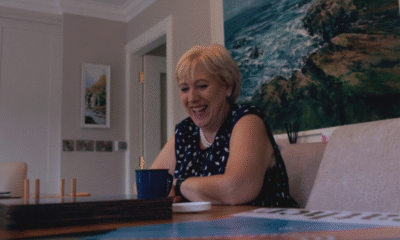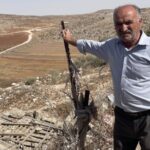Breaking News
‘I went in for a Caesarean – but ended up in a coma’

Read more on post.
Chris Waring, East Midlands
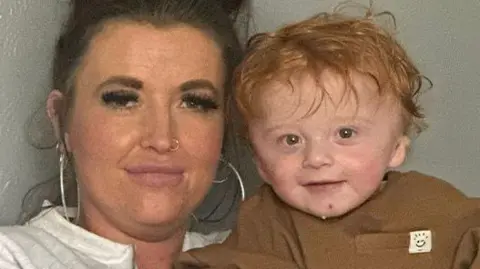 Supplied
SuppliedA woman who went into hospital for a planned Caesarean section and ended up in a coma for four days has said she remains traumatised by her experience.
Amie suffered internal bleeding during the Caesarean section at Nottingham City Hospital on 26 August 2024.
But she said her deteriorating condition was not identified, and was only able to see her son Reggie for 10 minutes before going into a coma.
Her case is one of hundreds being examined as part of the largest maternity review in NHS history, and the trust at the centre of the inquiry – Nottingham University Hospitals NHS Trust, which runs City Hospital – has apologised to Amie over her care.
The 35-year-old, from Bestwood Park in Nottingham, was originally booked in for the procedure on 15 October 2024, but that was brought forward due to her increasing blood pressure, leading to Reggie being born two months early.
She said she was told the bleeding was caused by “blunt trauma” as the bladder was pushed from the womb.
Amie said she soon felt unwell after the Caesarean section, feeling faint with low blood pressure.
In a letter, which has been seen by the BBC, medics told her this was likely due to the fact she was losing blood into the abdomen, “and we acknowledged there was an opportunity for us to have potentially identified this sooner”.
It added had consultant obstetricians and anaesthetists been involved in her care earlier, her internal bleeding may have been recognised sooner.
Eventually Amie became unresponsive after 08:00 BST the following morning and was taken into emergency surgery, in which she lost more than three litres of blood.
“All I remember is going back up on to the labour suite and my sister coming with my two other children,” she said.
“I remember eating some pizza and then I don’t remember anything after that until I came out of the coma.”
Reflecting on her experience, Amie said: “It is traumatic.
“Some days I’m sat there crying, especially when I think about it, because I just think who would have looked after my kids if something had happened to me?”
She said Reggie was born with a number of health complications, including oesophageal atresia and skeletal dysplasia, meaning he will have to have both legs amputated.
Amie said: “When he had loads of scans, they said one leg was bigger than the other.
“He had to have a six-hour operation on his oesophagus because his breathing tube was connected to his feeding tube.
“He has a hernia on his hip the size of a tennis ball, a hole in his heart, no kneecaps, no tibia bone in both of his legs, club foot and a cyst on the bottom of his spine.”
She added, though, “you’d never believe” Reggie had so many health issues.
“He is such a happy baby,” Amie added.
 Supplied
SuppliedAmie’s case is one of about 2,500 being examined as part of the independent maternity review into Nottingham University Hospitals (NUH) NHS Trust.
The review, being led by senior midwife Donna Ockenden, has been prompted by dozens of baby injuries and deaths at the trust.
It has closed to new cases, and Ms Ockenden is on track to publish a report on her findings in June 2026.
Amie said she had been told her case was one of the ones being explored, but added she had not heard anything since.
Of the trust, she added: “I just don’t trust them any more.”
In a statement, Tracy Pilcher, chief nurse at the trust, said: “We recognise the impact that this has had on Amie and her family, and accept that earlier review of her care could have resulted in complications being identified sooner. For that we are truly sorry.
“A full review of Amie’s care has already taken place, and we recognise the importance of her experience also being part of the Independent Maternity Review (IMR) led by Donna Ockenden.
“Learnings from our review and feedback from the IMR are crucial in helping us to improve our services, and we are thankful for those, like Amie, who have shared their experiences with us.”
Breaking News
PSNI arrest thousands under domestic violence legislation

Read more on post.
Police in Northern Ireland made more than 5,000 arrests during the past three years under new legislation aimed at tackling violence against women and girls.
The PSNI says it dealt with a call about domestic abuse on average every 17 minutes last year.
Northern Ireland is regarded as one of the most dangerous places in Europe for women, with 28 murdered by partners, former partners or family members during the past five years.
The latest victim was Vanessa Whyte, a veterinary surgeon originally from Co Clare who was shot dead by her husband along with her children, 13-year-old Sara and 14-year-old James Rutledge, at their home in Co Fermanagh in July.
Her husband, Ian Rutledge, died five days later from a self-inflicted gunshot wound.
Details of the number of arrests made were revealed as the PSNI today marks the third anniversary of an action plan to combat Violence Against Women and Girls (VAWG).
In the three year period up to the end of last month there were 5,042 arrests under new legislation covering domestic abuse, stalking and non-fatal strangulation.
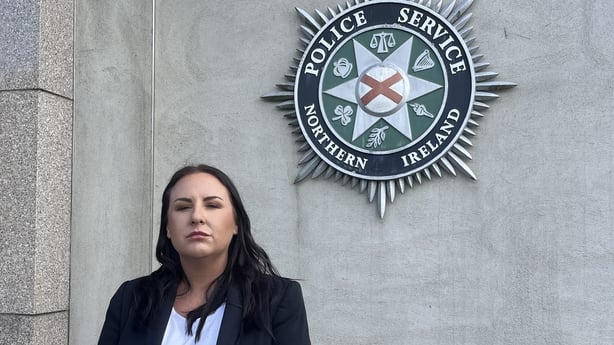
On average, there were 84 arrests each month for the domestic abuse offence, 19 for the offences of stalking and threatening and abusive behaviour, and 76 each month for non-fatal strangulation.
In the 12 months up to the end of July, police recorded 21,729 offences classified as Violence Against Women and Girls, down 4% on the previous year.
The scale of domestic violence is much higher than official figures suggest as it is known that many women do not report abuse.
“There’s a lot more work to do, but we’re absolutely committed, all of our officers and staff are absolutely committed to this action plan to tackle violence against women and girls,” says Detective Chief Inspector Leah Crothers of the PSNI’s Public Protection Branch.
“Some of the violence is brutal, really tragic circumstances. What I would say to everyone is that if you see it we need to call it out, this is a societal issue, it can’t just be the alone it needs to be all our partners as well and the community acting together to tackle this,” she added.
A woman violently assaulted by her boyfriend in March 2021 has spoken in support of the campaign.
Now 24, Sophie, not her real name, was a student at Queen’s University when she met Fearghall Mulgrew, a student at another university, on the popular online dating site Tinder in February 2021.
She liked him and they had been in a relationship for about a month before she agreed to go to his house on the night of 14 March 2021.
Mulgrew had told her he wanted to have rough sex.
“I thought okay, if that’s what he wants to do, because I wanted him to like me,” she recalls.
There had been no warning signs that Mulgrew had violent tendencies until that night.
“He was just from the outset very violent,” she explains.
“He slapped me, he bit me in my face, in my mouth, on my neck. He bit me in quite an intimate area, and wouldn’t let go until I kicked him off me,” she added.
When she pleaded with him to stop, he laughed.

“I was definitely powerless. When you think all I have to do is say stop and then that’s not working. I couldn’t have fought him.
“I was worried because I didn’t know how far it would go,” she said.
Crying and in pain, Sophie went to the bathroom and looked in the mirror, and was horrified.
“I looked beat up. I had a black strip across my neck, I had bites all up my face. I was crying, I said to him look what you’ve done, look at me, and he just laughed. It was almost like he was proud of it,” she added.
Her ordeal lasted 40 minutes to an hour.
When Mulgrew fell asleep she went to the kitchen and called a friend who sent her money for a taxi. She then went to hospital to have injuries treated.
In February last year at Belfast Crown Court, 26-year-old Fearghall Mulgrew from Stewartstown in Co Tyrone was sentenced to 22 months, with eight months to be spent in custody, after pleading guilty to sexual and physical assault. He will be on the sex offenders register for ten years.
Sophie has urged other women and young girls who are the victims of sexual assault to come forward and contact the police.
“It’s changed everything for me, it’s made such an impact on my life, it’s like a huge weight off my shoulders, it’s helped me to take steps to tackle what I had gone through,” she said.
“This incident has impacted my ability to form romantic relationships. I can’t be intimate with partners without a constant reminder of what happened, it’s hard not to think of it.
“I just don’t think it’s right that someone should have to go through that, and they won’t be held accountable for it,” she added.
“I think it’s so important that we teach young boys that if you do this, there is going to be repercussions and it isn’t going to be let go of.”
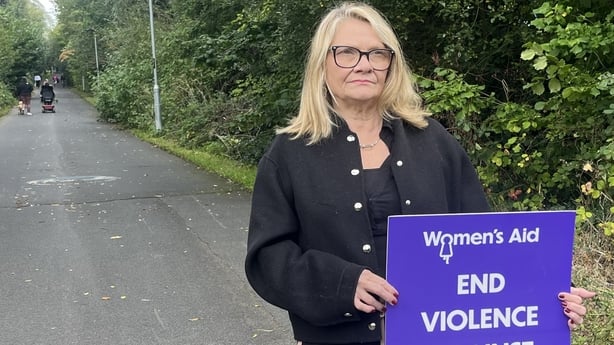
Sarah Mason, chief executive officer of the Women’ s Aid Federation Northern Ireland, which helped the PSNI draw up the strategy, has praised the police for its success to date.
“What we’ve seen in the last three years running alongside the action plan is more police training, we’ve been working with them, delivering training,” Ms Mason said.
She also praised legislation introduced during the past three years targeting domestic abuse, stalking and no-fatal strangulation.
But the Federation is concerned that a lack of resources can hinder response times.
“The police are the first to admit that they don’t have enough resources and that will have an impact on their response to domestic abuse and that is a big issue,” she said.
“The police attending a serious domestic violence incident can potentially save a life and they can hold the perpetrator of a crime to account so I’m the biggest supporter of encouraging women to phone. It’s important to get that message out there,” she added.
The PSNI acknowledges that resourcing is an issue, but says tackling domestic violence and abuse is a priority.
Police are also concerned about the level of under-reporting of domestic violence, with many victims too frightened to come forward.
“By its very nature most abuse happens within the homes so what I would say is that if you are a victim of abuse in no matter what form that abuse takes, whether it be physical, sexual, emotional, call the police, tell us so that we can actually act upon and we can keep you safe,” says Detective Chief Inspector Crothers.
“Even with our resourcing issues domestic abuse is our key priority, we will always tackle domestic abuse,” she added.
Breaking News
West Bank: Tales of the dispossessed
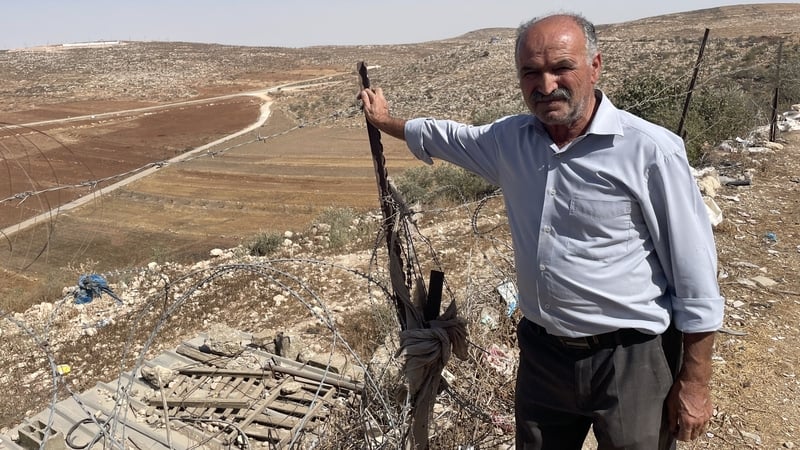
This post was originally published on this site.
Continuous expansion by Israel of settlements in the West Bank is pushing Palestinians out of their homes and move elsewhere.
The pattern consists of settler attacks on Palestinian farms and villages, often aided and abetted, say locals, by the Israeli military.
According to the West Bank Protection Consortium (WBPC), comprising five NGOs and funded by the EU, between January 2023 and July of this year, almost 2,700 Palestinians, or 421 households, were forced out of their communities.
Europe Editor Tony Connelly speaks to locals struggling to protect their livelihoods as they are pushed off their lands.
At 10am on 2 August, an Israeli was injured in an altercation near an illegal settler outpost north of Ramallah. The settler claimed his attacker had retreated to the adjacent village of Al-Mughayyir.
Within an hour, two busloads of Israeli troops and 18 jeeps seized the village, preventing locals from entering or leaving and shuttering shops.
At that point, ten D9 Caterpillar bulldozers set about uprooting and destroying around 10,000 olive trees, laying waste to a swathe of the valley below the town.
The residents of Al-Mughayyir believe the alleged attack on the settler was a pretext for a prepared plan to confiscate more Palestinian land.
“The accident happened at 10am,” says Marzouq Abu Naem, deputy head of the local municipality. “At 11am, all the security forces were here. Not even the United States could react that fast.”
By the end of the operation, the olive groves had been reduced to a dull swathe of empty earth. Some 43,000 dunams (a unit of land roughly equivalent to one quarter of an acre) of Palestinian land had been seized or at least put off limits to locals.
“We’re talking 10,000 trees,” Abu Naem tells RTÉ News. “That would have provided 5,000 gallons of olive oil, each gallon worth $150. All that income has gone, just like the olive trees themselves. It represented our history, our culture. The owners of the trees, when they saw what had happened, collapsed in grief.”
Six minutes drive away, Turmus Ayya overlooks another valley of olive groves. On the far side is the hilltop Jewish settlement of Shilo, built in 1978 and expanded by 60% in 2012 (a move then condemned by the EU as a provocative breach of international law and contrary to peace negotiations).
“This is absolutely legally my land. And I have the paperwork, I have the title documents, the register”
The valley was already notorious for clashes between Palestinians and settlers: in June 2023, four Israelis were killed, and in response, hundreds of masked settlers firebombed the town, killing one local.
The Hamas attacks of 7 October escalated tensions sharply. Locals say settlers upped their aggressive tactics, expanding into the valley and cutting off access to olive groves, some of which have already been destroyed and replaced by vineyards.
“If I went down to my olive trees, a gun would be drawn against me: leave, or else,” says Yasser Alkam, a US citizen and semi-retired attorney, who returned in 2022 with his wife Jenan, from their home in Anaheim, California, to manage his father’s olive grove in the ancestral home.
“This is absolutely legally my land. And I have the paperwork, I have the title documents, the register.”
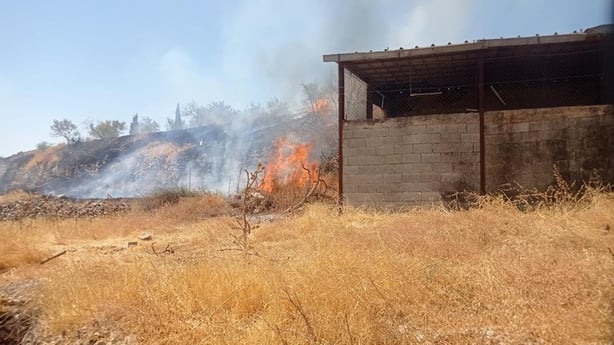
Notwithstanding the horrors of Gaza, the pattern of settler expansion in the West Bank has become a new ground zero in the geopolitics of the Middle East.
The pattern consists of settler attacks on Palestinian farms and villages, often aided and abetted, say locals, by the Israeli military. These are focused on what is called Area C, an administrative zone established by the Oslo Accords in which Israel has complete military control, with some civilian services being provided by the Palestinian Authority.
Area C is the most fertile and spacious part of the West Bank and, according to Palestinians, would provide the bulk of a future state.
However, it is a zone with a spectacularly built-in bias in favour of Israeli settlers: permissions for expanding settlements are normally given, while only 1% of applications for Palestinian planning permission is granted.
The seizure of Palestinian land is exacerbated by the demolition of their homes and villages on the basis that – according to the settlers who carry out the demolitions – they don’t have the proper “permits”.
This forces Palestinians to move elsewhere, often out of Area C and into poorer, more crowded parts of Areas A and B, with Bedouin shepherds hounded off their traditional pastures.
A UN inquiry has found that approximately 2,000sq/km have been confiscated in Area C alone since 1967, amounting to more than a third of the West Bank.
Those confiscations are intensifying.
According to the West Bank Protection Consortium (WBPC), comprising five NGOs and funded by the EU, between January 2023 and July of this year, almost 2,700 Palestinians, or 421 households, were forced out of their communities.
“A growing tactic is the establishment of new settler caravans and structures directly beside Palestinian villages,” says a recent WBPC report. “These ‘outposts’ bring intensified violence, constant military presence, and further loss of land and access to services. The effect is to surround communities and gradually make daily life impossible.”
That incremental encroachment through the use of small outposts appears to be the case in Turmus Ayya.
We need your consent to load this rte-player contentWe use rte-player to manage extra content that can set cookies on your device and collect data about your activity. Please review their details and accept them to load the content.Manage Preferences
“That tent we see there,” says Alkam, pointing down to an encampment several hundred metres away in the valley. “Two weeks ago, there was one single tent. Now you can see two, one on the right side of the street and one on the left side. Now they have water tanks, equipment, and it continues to spread out closer and closer to the town.”
Such tactics have already seen communities displaced across the West Bank: in Khallet a-Thabe’, south east of Ramallah, 95% of the village was demolished, forcing locals to live in caves, which were then sealed or destroyed by Israeli forces, according to the WBPC.
“Forcible transfer in the West Bank results from a systematic environment that makes life unlivable: repeated demolitions, denial of permits, settler violence (often in the presence of Israeli forces), land confiscation, restrictions on movement, and cuts to water and electricity,” according to the WBPC report.
In its advisory opinion in July last year, the International Court of Justice (ICJ) found that such actions were in clear breach of the Geneva Convention, which “strictly prohibits forcible transfer of protected persons,” and that, as the occupying power, Israel is legally responsible.
The report concluded that the “continuous expansion by Israel of settlements and related infrastructure actively contributes to the entrenchment of the occupation”.
That entrenchment appears to be the current policy of the government of Prime Minister Benjamin Netanyahu, under pressure from far right members of his cabinet.
In November 2023, finance minister Bezalel Smotrich called for the government to “create sterile security areas around (Jewish) communities and roads and prevent Arabs from entering them, including for the purpose of olive harvesting”.
The far-right are now making an explicit link between recognition and settlement expansion.
In July, Smotrich announced that “for every country that unilaterally recognises a Palestinian state, we will establish a settlement.”
Following Ireland’s recognition – alongside Spain, Norway, Armenia and Slovenia – Smotrich said Israel would “recognise” five illegal settlements in the West Bank.
After ten countries this week formally recognised a Palestinian state, Itamar Ben Gvir, another far-right minister, went further.
“The recognition by Britain, Canada, and Australia of a Palestinian state… requires immediate counter measures: the swift application of sovereignty in Judea and Samaria (the Israeli name for the West Bank) and the complete dismantling of the Palestinian Authority.”
On Wednesday, US President Donald Trump met leaders and senior officials from Saudi Arabia, Qatar, Turkey, Jordan, the UAE and Indonesia on the margins of the UN General Assembly and presented them with a 21-point peace plan to end the Gaza War.
They reportedly laid down several conditions to the plan, which develops a number of existing initiatives, and expressed “grave reservations” about Israel annexing the West Bank.
The next day, Trump told reporters in the Oval Office that he would “not allow” that to happen.
He may have given Israel wiggle room, however, and much will depend on Trump’s meeting with Netanyahu on Monday.
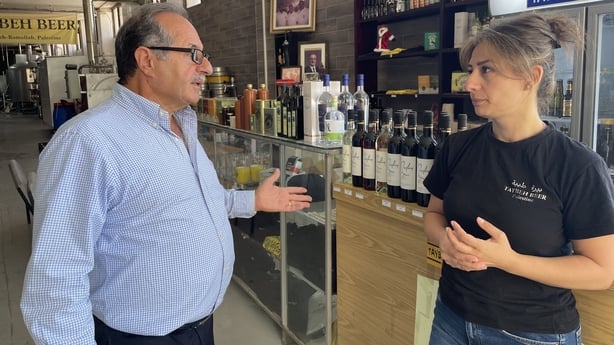
On Thursday, the Israeli foreign minister, Gideon Sa’ar said there was “no intention of even discussing the annexation of Palestinian Authority territories because we don’t want to control the Palestinians”.
However, he added: “What can be discussed, but hasn’t yet been decided, is implementing Israeli law on the Israeli communities located there and not under the Palestinian Authority.”
That would be tantamount to selective annexation.
Palestinians say the Palestinian Authority (PA) is already being slowly asphyxiated by vindictive Israeli security measures.
In June, after Australia, Canada, New Zealand, Norway and the United Kingdom announced sanctions against Ben Gvir and Smotrich, the latter ordered the suspension of the indemnity which allows Palestinian banks to interact with their Israeli counterparts in response, he said, to the “delegitimisation campaign against the State of Israel internationally”.
We need your consent to load this rte-player contentWe use rte-player to manage extra content that can set cookies on your device and collect data about your activity. Please review their details and accept them to load the content.Manage Preferences
Given that PA has no central bank or currency, West Bank businesses rely on an interbank arrangement with Israel to import and export goods. Smotrich’s move could be economically devastating.
This comes on the back of the denial of customs clearance revenue due to the PA and the blocking access to West Bank residents working in the service sectors of the Israeli economy.
Locals complain that the Israeli military are increasing road closures and checkpoints, making economic life ever more difficult.
“It’s exporting, going through additional security checks for no reason, more delays getting permits to pass through the commercial checkpoints to get to the port (in Israel),” says Madees Khoury, who works for the Taybeh Brewing Company, whose water supply has been reduced to one day a week after settlers allegedly smashed water pipes serving 14 Palestinian villages near Ramallah.
Nowhere is the link between settlement expansion and the crushing of statehood aspirations more graphically on display than the E1 Construction Project.
Originally conceived in 1991, the plan would provide for the expansion of the large and long established Ma’ale Adumim settlement westward towards East Jerusalem, with an extra 3,400 homes as well as industrial and commercial zones.
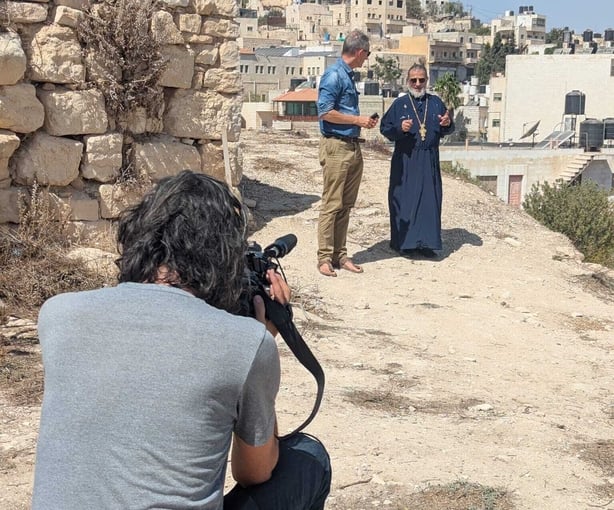
The effect would be to link up Ma’ale Adumim with Jerusalem, but, according to critics, it would cut the West Bank off from East Jerusalem, the notional capital of a future Palestinian state, and make travel between the north and south of the West Bank significantly harder.
While the European Union has long condemned the E1 Construction project as threatening the viability of a contiguous Palestinian state, it has been supported by successive Israeli prime ministers, who claim it is important for Jerusalem’s security, and has only been held back due to periodic pressure from the United States.
But Israeli attitudes have hardened, and any denial that the E1 risks the viability of a Palestinian state appears to have been dropped.
On 14 August, Smotrich announced that the project was about to be given the go ahead.
“Those in the world trying to recognise a Palestinian state will get an answer from us on the ground,” he said. “Not through documents, not through decisions or declarations, but through facts. Facts of homes, neighbourhoods, roads and Jewish families building their lives.”
After the Supreme Planning Council duly approved the plan, it was launched by Netanyahu on 11 September. To vigorous applause, he declared: “We said there wouldn’t be a Palestinian state, and we say again there won’t be a Palestinian state. This place is ours. We will take care of our country, our security and our heritage.”
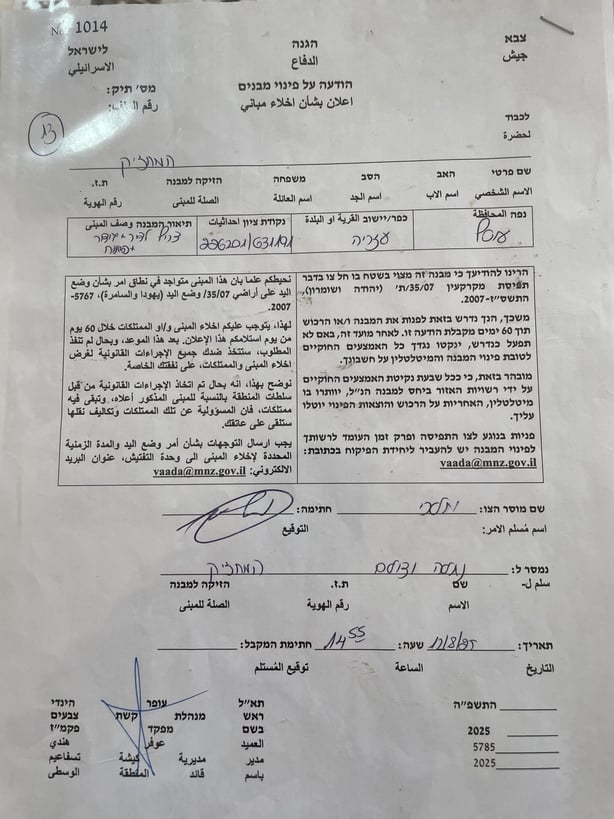
On 12 August, two days before Smotrich’s announcement, Attalah Jahlein, a member of one of 18 Bedouin tribes that have for centuries used the 12sq/km stretch of mountains and valleys as pasture land, received a letter from the authorities.
It stated: “You must vacate the building and/or property within 60 days from the date you receive this notice. After this date, if you do not comply, all legal measures will be taken against you to vacate the building and property, at your own expense.”
In other words, Jahlein’s property would be demolished, and he would have to pay for the demolition.
“At that moment, we felt like it was the end of our existence, but we will keep struggling,” he told RTÉ News.
“It will kill the dream of a Palestinian state, take a lot of land from Jerusalem, and, in particular, it will separate the south from the north of the West Bank. It will destroy Bedouin life in the area.”
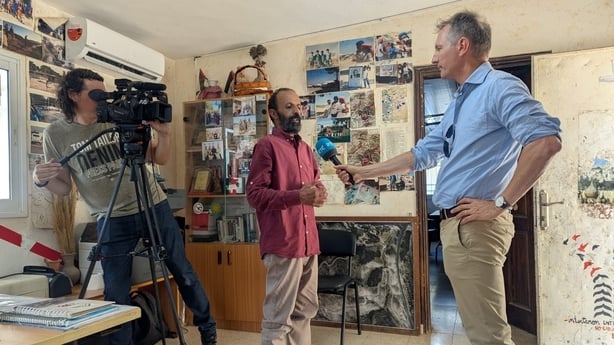
In Ma’ale Adumim itself, a pristine and palm tree studded settlement with some 50,000 residents – many from the Jewish diaspora – locals are dismissive of Palestinian claims and enthusiastic about the commencement of the project, claiming it will provide jobs for Palestinians.
“We live here,” says Kobi Eini, a 36-year-old resident.
“People are moving here, we need to expand for more people to move in. It can also lead to a solution. You can’t just stand by and wait.”
Breaking News
US forensic experts assist gardaí in Mike Gaine murder investigation
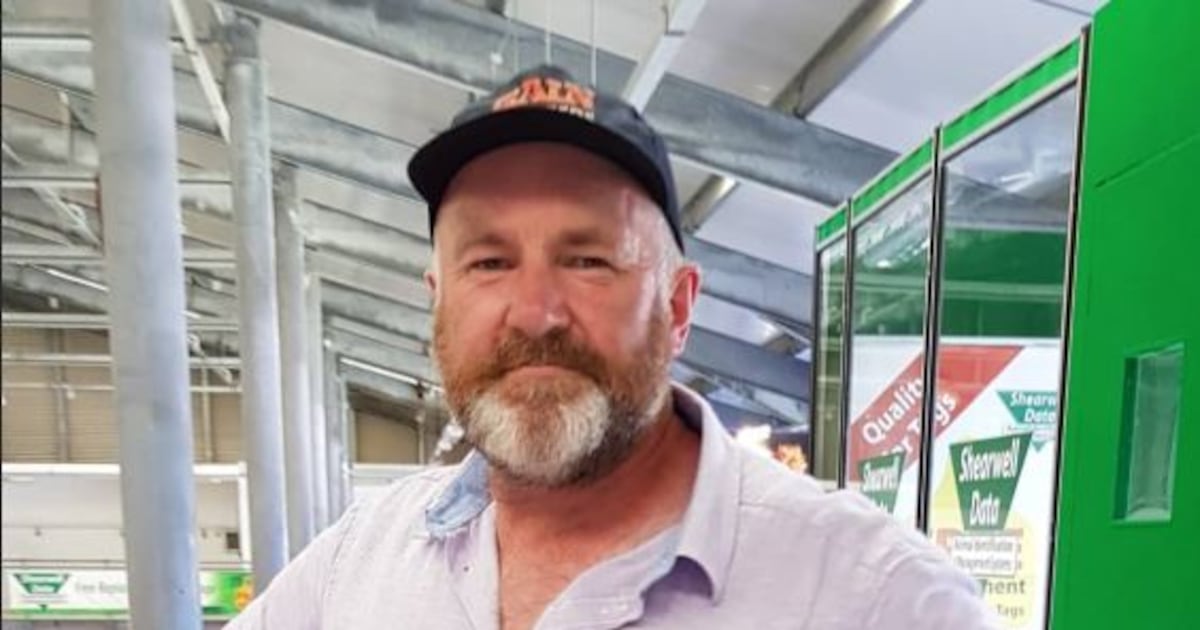
Read more on post.
Gardaí investigating the murder of Kerry farmer, Michael Gaine requested the assistance of American forensic experts, who had travelled to Ireland to help gardaí carry out a review of the murder of French woman, Sophie Toscan du Plantier.
Officers investigating the murder of Gaine (56), whose dismembered body was found in a slurry tank on his Kenmare farm, sought the assistance of US forensic expert, Suzanna Ryan, who had come to Ireland to use the revolutionary DNA gathering technology M Vac in the Toscan du Plantier case.
Ms Ryan and M Vac chief executive, Jared Bradley, came to Ireland at the end July to examine exhibits in the Toscan du Plantier murder case, including the rock and cavity block used to bludgeon the 39-year-old mother of one to death in west Cork in December 1996.
Ms Ryan and Mr Bradley were brought by Kerry gardaí to the cattle shed at Mr Gaine’s farm at Carrig East 6km from Kenmare.
Gardaí believe Mr Gaine was murdered on March 20th in the cattle shed and his body dismembered before being disposed in the slurry tank beneath the slatted unit. Human tissue was recovered on May 16th after an agriculture contractor found tissue while spreading slurry from the tank.
It’s understood Ms Ryan recovered some minute particles of blood in the shed using the M Vac technology, which involves the application of a solution to a surface, and its subsequent vacuuming up and collection, which then can be sent for analysis to see if it contains any relevant DNA.
Gardaí had hoped that the blood samples recovered from the cow shed might help them identify Gaine’s killer, but the blood was actually bovine blood from calving when it was tested by scientists at Forensic Science Ireland laboratory in Kildare.
Gardaí have previously sought assistance from abroad with team of Dutch investigators using specialised drone equipment detecting soil disturbance.
The Dutch team spent several days using their highly sensitive drone technology flying over the 404 hectare hillside farm to see if it could detect any sign of the soil being disturbed amid garda suspicions that Gaine’s killer may have buried the weapons used to kill the Kerry farmer.
Gardaí found a number of knives on Gaine’s property but don’t believe they were the weapons used to kill him. They had sought the assistance of the Dutch experts to search the land given the huge amount of ground that they had to cover to find a possible disposal site for the weapons.
Gaine lived at Carhoomengar with his wife, Janice, who reported him missing on March 21st. The case was upgraded to a murder inquiry on April 29th.
US citizen Michael Kelley (53) who lived at the old farmhouse at Carrig East in return for helping Gaine on the farm, was arrested but released without charge.
He has denied any involvement in Gaine’s murder.
-
Politics4 days ago
European Parliament snubs Orbán with vote to shield Italian MEP from Hungarian arrest
-
Culture3 weeks ago
Life, loss, fame & family – the IFI Documentary Festival in focus
-
Culture2 months ago
Fatal, flashy and indecent – the movies of Adrian Lyne revisited
-
Environment1 week ago
Key oceans treaty crosses threshold to come into force
-
Health5 days ago
EU renews support for WHO’s Universal Health Coverage Partnership
-
Culture1 week ago
Farewell, Sundance – how Robert Redford changed cinema forever
-
Culture4 days ago
Twilight at 20: the many afterlives of Stephenie Meyer’s vampires
-
Culture4 weeks ago
What is KPop Demon Hunters, and why is everyone talking about it?









